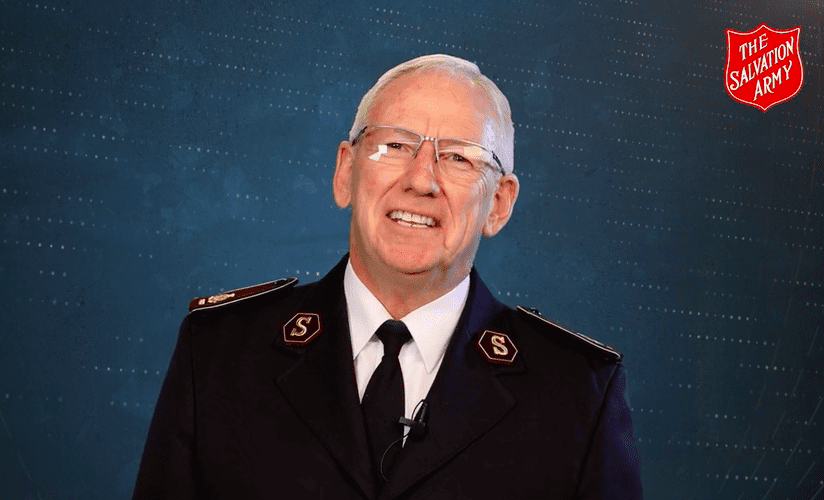Listen to this article
Listen to this article
Loading
Play
Pause
Options
0:00
-:--
1x
Playback Speed- 0.5
- 0.6
- 0.7
- 0.8
- 0.9
- 1
- 1.1
- 1.2
- 1.3
- 1.5
- 2
Audio Language
- English
- French
- German
- Italian
- Spanish
Open text
the secret to living a simple life. “not that i am speaking of being in need, for i have learned in whatever situation i am to be content. i know how to be brought low, and i know how to abound. in any and every circumstance, i have learned the secret of facing plenty and hunger, abundance and need. i can do all things through him who strengthens me.” philippians 4:11-13 (esv). this so-called secret paul reveals of being content in any circumstance illustrates a life’s journey up mountainous peaks and down valley lows, in poverty and prosperity, through assurance and doubt. the one constant line drawn over human life is god’s never-ending, never-changing love for us. the minimalist movement has taken much momentum in recent years. it’s changed the way people live—through what’s in the budget (or not) and what matters (or doesn’t). however, minimalism isn’t just in the physical manifestation of having less or simpler. minimalism is a concept of being intentional about the values of life, more than the valuables in life. so, whether the minimalism aficionados have it “right” or not or whether it’s appealing to you or not, there is a bottom line that suggests the secret to simplicity that relates to paul’s philosophy on living. when it comes to contentment, society has it backwards. instead of saying, “when i have a steady job that pays well, a house in a safe neighborhood, a family with 2.5 children and a dog, i’ll be content.” let’s consider making an amendment to it by saying, “i have everything i can possibly want and need in jesus christ who strengthens me, so whatever else there is, is an additional blessing. i’m already content.” see the difference? there’s nothing wrong with having goals. however, this linear way of wanting and living depends heavily on circumstances. and we all know that circumstances are prone to change. that’s why, as humans who often rely on the circumstances, we are able to love, live and give conditionally when there’s a god who loves unconditionally. it’s when we learn to saturate our lives with this simple truth that we are then able to love, live and give unconditionally. so, more than how many large purchases we can replace with diy projects, or how many things we can be rid of, is the underlying principle that we should look toward the truly valuable. to set our minds on what is valuable and to rebuild our value system based on the one who gives value in the first place.
Open context player
Close context player
Plays:-Audio plays count
the secret to living a simple life. “not that i am speaking of being in need, for i have learned in whatever situation i am to be content. i know how to be brought low, and i know how to abound. in any and every circumstance, i have learned the secret of facing plenty and hunger, abundance and need. i can do all things through him who strengthens me.” philippians 4:11-13 (esv). this so-called secret paul reveals of being content in any circumstance illustrates a life’s journey up mountainous peaks and down valley lows, in poverty and prosperity, through assurance and doubt. the one constant line drawn over human life is god’s never-ending, never-changing love for us. the minimalist movement has taken much momentum in recent years. it’s changed the way people live—through what’s in the budget (or not) and what matters (or doesn’t). however, minimalism isn’t just in the physical manifestation of having less or simpler. minimalism is a concept of being intentional about the values of life, more than the valuables in life. so, whether the minimalism aficionados have it “right” or not or whether it’s appealing to you or not, there is a bottom line that suggests the secret to simplicity that relates to paul’s philosophy on living. when it comes to contentment, society has it backwards. instead of saying, “when i have a steady job that pays well, a house in a safe neighborhood, a family with 2.5 children and a dog, i’ll be content.” let’s consider making an amendment to it by saying, “i have everything i can possibly want and need in jesus christ who strengthens me, so whatever else there is, is an additional blessing. i’m already content.” see the difference? there’s nothing wrong with having goals. however, this linear way of wanting and living depends heavily on circumstances. and we all know that circumstances are prone to change. that’s why, as humans who often rely on the circumstances, we are able to love, live and give conditionally when there’s a god who loves unconditionally. it’s when we learn to saturate our lives with this simple truth that we are then able to love, live and give unconditionally. so, more than how many large purchases we can replace with diy projects, or how many things we can be rid of, is the underlying principle that we should look toward the truly valuable. to set our minds on what is valuable and to rebuild our value system based on the one who gives value in the first place.
Listen to this article

















